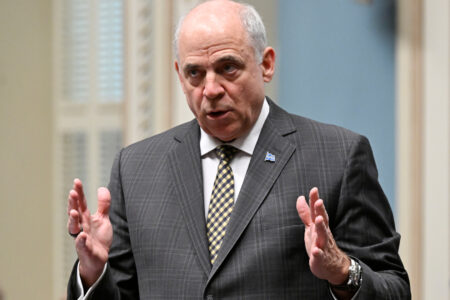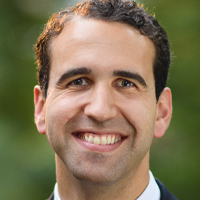
Canadians often refer to their Charter rights and freedoms, but not as much to their Charter values. In recent years, though, Charter values have gained traction in Canadian law. They now play a key role in how the Charter is understood — but there is reason for concern.
Charter values rose to prominence in a case in which the public regulator of lawyers in Quebec disciplined a lawyer for sending a scathing letter to a judge after a court appearance. The lawyer argued that the sanction unduly limited his freedom of expression under the Charter.
In 2012, the Supreme Court of Canada upheld the sanction and, in so doing, explained how bodies to which the state delegates decision-making powers should proceed when their decisions impact “Charter values.” The key question is whether the actions of these bodies strike a proportional balance between the achievement of their legislative mandate and the infringement of the Charter value. This test applies only to administrative decision-makers — the myriad public bodies that the state empowers to decide countless issues. From boards to tribunals to commissions to agencies, these bodies play a major role in the lives of Canadians.
Criticism of Charter values is intensifying among lawyers, professors and judges. These values are not found in the Charter, which refers only to rights and freedoms. This means it is up to courts and administrative decision-makers to identify Charter values and define them. While a set of values certainly animates the Charter and inspired the text of the document as we know it today, the Charter guarantees only the rights and freedoms that it contains. The rise of Charter values is viewed by some as tantamount to illegitimate constitutional amendment.
The nebulous and contested nature of these values increases the chance that their legal definition will reflect the personal views of judges and administrative decision-makers.
The current list of Charter values — a list that is open to expansion — includes equality, dignity and human rights. While most Canadians likely agree with the list, they do not agree on how these values are understood. The meanings of equality and dignity, for example, are far from settled. The nebulous and contested nature of these values increases the chance that their legal definition will reflect the personal views of judges and administrative decision-makers.
In a recent speech, a judge of our Supreme Court described high courts as the “final adjudicator of which contested values in a society should triumph.” But this adjudication has largely happened in Canada already, and the rights and freedoms chosen for the Charter triumphed. Where further adjudication of contested values is needed, it is not for judges to take up this task. With respect, their role is to interpret and apply the law. They are not philosopher kings or queens. To view them as such betrays what another Supreme Court judge called the “basic theory” of the Charter: the state will “respect choices made by individuals and, to the greatest extent possible, will avoid subordinating these choices to any one conception of the good life.”
Charter values have proven capable of trumping claims that Charter rights and freedoms have been violated. A recent example is the Supreme Court’s decision on whether the proposed law school at Trinity Western University, a private Christian university, should be accredited by administrative decision-makers that regulate lawyers. One of the clauses in Trinity’s code of conduct prohibits sexual intimacy outside of traditional marriage. Given the barriers that this clause created for potential LGBTQ law students and lawyers, the Court upheld the choice of administrative decision-makers in Ontario and British Columbia to not accredit Trinity’s law school. In balancing Trinity’s religious freedom in section 2(a) of the Charter against the Charter value of equality, the Court — in a 7-to-2 ruling — found it reasonable to prefer the latter.
Among the seven judges who ruled against Trinity, two — Justice Malcolm Rowe and Chief Justice Beverley McLachlin — expressed concerns with Charter values. Justice Rowe, writing for himself, entitled a section of his judgment “The Problem with Charter Values.” Justices Russell Brown and Suzanne Côté, the two dissenting judges in the case, also criticized Charter values.
Perhaps the most troubling aspect of Charter values is the threat they pose to the rule of law, a fundamental principle of the Canadian Constitution. An essential feature of the rule of law is the idea that any exercise of power by the state — including by judges — must have a source in law. If the state were to imprison you for a crime that does not exist, that action would violate the rule of law by being an exercise of arbitrary state power.
The absence of Charter values in the Charter — combined with their ripeness for subjectivity — casts doubt on their compliance with the bedrock principle that we are ruled by law rather than by raw power. This defect in Charter values may explain why they cause concern across the political spectrum. The conviction that we should be ruled by law rather than by arbitrariness transcends political allegiance.
Charter values may not be of great concern to some people because, in their opinion, the court is reaching the right result in a given case. The Trinity Western case may be an example: Trinity deserved to lose, some say, so it is not terribly important how the Court arrived at that conclusion.
This thinking, if it exists, is dangerous. Justice is not served only by outcomes. Process matters too, and it can affect outcomes. Even where process is not decisive in a case, use of a flawed process today may lead to injustice tomorrow given the role of precedent in our legal system.
Enlarging discretion for judges — and other state actors — generally increases the risk of arbitrary and unreasoned exercises of power. It invites decision-making that is driven by the preselection of a desired result in a case. In a choice between clarity and vagueness in the legal rules and principles that are to govern judges, justice is better served by clarity. Charter values sabotage this choice by increasing ambiguity and discretion in judicial decision-making.
The growing concerns with Charter values may indicate that a reconsideration of this concept by the Supreme Court is on the horizon. Given the gravity of those concerns in relation to matters such as the rule of law and the protection of Charter rights and freedoms, let us hope that the moment for reconsideration comes soon.
Photo: Shutterstock, by jjawangkun.
Do you have something to say about the article you just read? Be part of the Policy Options discussion, and send in your own submission. Here is a link on how to do it. | Souhaitez-vous réagir à cet article ? Joignez-vous aux débats d’Options politiques et soumettez-nous votre texte en suivant ces directives.








